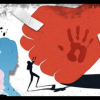Delayed justice: How long is too long?

In Bangladesh, litigants face various obstacles to access justice in every stage of the legal process, starting from the decision to take legal action, to the investigation, prosecution and trial, until the issuance of a judgment and its enforcement. At the outset, some litigants lack sufficient knowledge of their rights as well as the applicable legal procedures to seek relief before the courts. Many lack resources and are discouraged by the high costs of proceedings or the inaccessibility of the courts.
BRAC Human Rights and Legal Aid Services (HRLS) programme, dedicated to protecting and promoting human rights of the poor and marginalised through legal empowerment, has compiled and analysed data regarding court cases, filed through its legal aid clinics with the assistance of HRLS appointed Panel Lawyers, from seven divisions of Bangladesh to identify the number of cases which have been pending disposal in courts for over three or more years. A sizable volume of court case backlog was noticed which in turn also reflects the larger picture of the court system across Bangladesh. According to the data compiled by HRLS, from 1998 till December 2015, a total of 52,117 cases were filed through BRAC Legal Aid Clinics (with the assistance of HRLS appointed Panel Lawyers) among which 14,797 cases are ongoing.
The majority of civil cases are concerning dower, maintenance and execution of decree and the majority of criminal cases are regarding rape, murder, physical torture for dowry and acid attack. Of the total number of criminal cases pending for three or more years across the HRLS Legal Aid Clinics in seven divisions, 47 percent are rape, 23 percent are murder, 11 percent are cases of physical torture for dowry, 10 percent are other and 9 percent are acid violence cases.
The common barriers to women's access to justice can be extracted from HRLS case studies. Among 97 criminal cases, 45 cases were randomly picked for further analysis. The data indicates that 70 percent of the cases are backlogged at the witness hearing stage for a minimum of 3 or more years, whereas 22 percent of the cases are backlogged at the investigation stage for 1 year and above. At the charge hearing stage, 4 percent of the cases took more than 2 or more years, and at the judgment stage 4 percent cases took 2 or more years. Backlog of cases is the biggest impediment in the judicial system of Bangladesh, delaying the process of justice to the people.
In Dhaka division, among 12 acid violence cases filed with the assistance of HRLS, not a single one has reached the judgment stage and all cases are pending at the witness hearing stage. One particular acid case which was filed through the Kapasia HRLS Legal Aid Clinic in 2007 is still ongoing. The case was forwarded to an HRLS panel lawyer within five days from receipt of the complaint at the Legal Aid Clinic. This case reveals that it took three years to frame a charge sheet due to transfer of the original investigation officer (IO), thus delaying the process of handing over his responsibility to the new IO. At the charge hearing stage, it took one year due to the absence of the judge in the Acid Crime Tribunal as well as too many case hearings in one day, thereby delaying the process of a new hearing date. The case is currently at the witness hearing stage for five years due to court adjournment, transfer of the original IO, absence of the judge (due to transfers or promotions), and unavailability of the IO and Medical Officer.
According to section 11 of the Acid Offence Control Act, 2002, the investigation officer is under an obligation to complete an investigation within 30 days from the date of receiving the information of commission of the offence. Where this is not possible, an additional 15 days maybe extended provided the Tribunal is satisfied. In any case, the investigation period cannot be extended for more than a total of 75 days [See section 11(1), 11(2), 11(3) and 11(4)(a) of the Acid Offence Control Act, 2002]. Furthermore, the tribunal is under an obligation to conclude the trial within 90 days from the date of receipt of the record of the case, and the hearing must continue every working day consecutively until its conclusion (See section 16 of the Acid Offence Control Act, 2002).
It is not only acid cases which are backlogged. All pending cases from HRLS legal aid clinics from seven divisions reveal the same trend. The most time-consuming stage is the witness hearing stage, usually due to lack of timely appearance of witnesses.
Despite the grim picture that this data paints, all is not lost. The Supreme Court, led by the Honorable Chief Justice Surendra Kuman Sinha, has started taking effective measures in order to reduce the backlog of cases, including amongst others, the recruitment of judges, construction of separate court buildings for judicial magistrates, and recruitment of support staff for lower court judges. Additionally, the Justice Sector Facility (JSF) project is being implemented by the Law and Justice Division of the Ministry of Law, Justice and Parliamentary Affairs, supported by UNDP Bangladesh and UK Aid. This project is intended to assist the justice sector institutions in Bangladesh to bring about more effective case management, strengthen institutional planning capacities across the justice sector, and raise awareness of legal aid and improve its administration (See www.bd.undp.org).
For the poor and marginalised clients, the road to access to justice is indeed an arduous one. The decision to seek to assert one's legal right without paying heed to social constraints is the first challenge. Entering the formal court system to seek justice requires poor litigants to be prepared for a lengthy legal battle, fraught with obstacles which are often built into the system or brought about, not only by their opponent's legal representatives, but sometimes their own. Cases involving offences of a sexual nature against women can be particularly strenuous for the survivor as the weight of social pressure stops her from seeing through to the end what is usually a lengthy trial for justice.
On behalf of the poor and marginalised litigants of Bangladesh, the hope is that the initiatives taken by the Ministry of Law, Justice and Parliamentary Affairs and the Supreme Court will take shape and bring about a significant reduction in backlog of cases, and enforce effective case management mechanisms throughout the country.
The writer is Barrister and Advocate, Supreme Court of Bangladesh, and Programme Head, Human Rights and Legal Aid Services, BRAC.

 For all latest news, follow The Daily Star's Google News channel.
For all latest news, follow The Daily Star's Google News channel. 







Comments